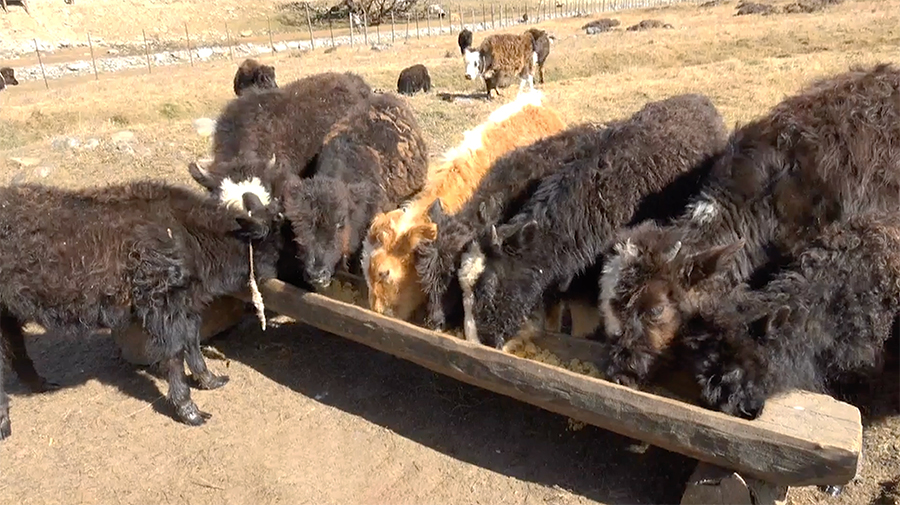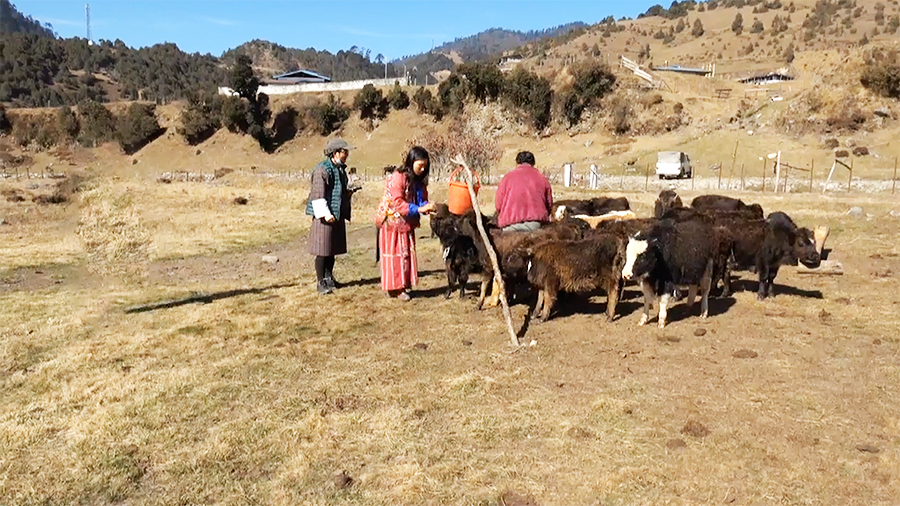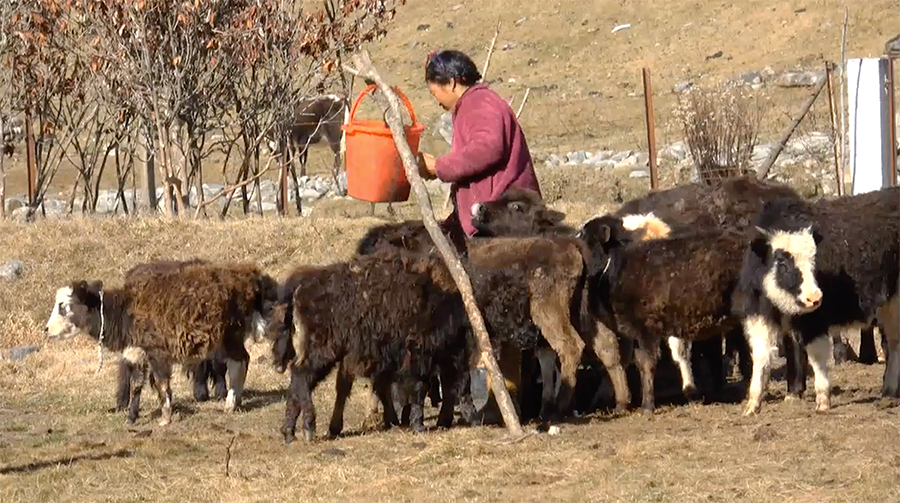
In the highland communities such as Merak and Sakteng in Trashigang, where livelihoods rely heavily on livestock, the Sakteng Nyingje Jam Chong Tshogpa has become a lifeline. The centre has saved more than 1,500 calves from being culled, over the past six years, offering hope to herders and a future for the low-yielding cattle.
These two types of calves are born from breeding of Zomo (female) and Nublang, and Zomo and Male Yak.
They are often culled within a week of birth because they are considered low-yielding cattle.
However, since the establishment of the Sakteng Nyingje Jam Chong Tshogpa in 2019, herders have been bringing these calves to the centre.
 The group which operates the centre was formed by a private individual by leasing six acres of land from the government.
The group which operates the centre was formed by a private individual by leasing six acres of land from the government.
 Currently, two women manage the centre. They feed the calves three times a day with maize flour and even milk.
Currently, two women manage the centre. They feed the calves three times a day with maize flour and even milk.
 Despite their efforts, they are facing financial constraints.
Despite their efforts, they are facing financial constraints.
Leki Tshomo, a volunteer said “We are facing financial problem. People here contribute flour and butter. A private individual called Kinzang seeks financial support from within Bhutan and abroad. But still, we are facing financial constraints. In a month, we are spending Nu 40,000 to 50,000.”
The centre receives nearly 300 calves annually from herders in Merak and Sakteng.
Once the calves are grown, they are distributed to people who are willing to adopt.
So far, people from Monggar and Trashigang have adopted and raised nearly 1,000 cattle.
 Currently, the centre has around 40 calves.
Currently, the centre has around 40 calves.
Tashi Phuntsho, a resident said “As we entirely depend on dairy products such as milk, butter and cheese to buy clothes, boots and hat we have to separate the calf from the mother. Or we will not get milk. So, in order to get milk, we do not have any other choice than to kill calf. Our forefathers have been doing the same.”
Nima, another resident said “These types of cattle are considered as low breed compared to others. There is no benefit even if we raise them. A few years ago, Sakteng Dungpa’s wife started this group. It has benefited our herder because now we do not have to kill calves and it has benefited us.”
Initiatives like the Sakteng Nyingje Jam Chong Tshogpa not only saves the lives of calves but also inspires a shift toward compassion and sustainability.
Sonam Darjay, Trashigang
Edited by Tshering Zam










